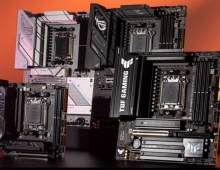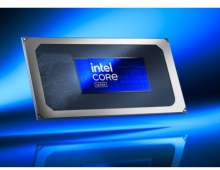
Intel, TSMC Reach Agreement to Collaborate on Technology Platform, IP Infrastructure, SoC Solutions
Intel and TSMC today announced a memorandum of understanding (MOU) to collaborate on addressing technology platform, intellectual property (IP) infrastructure, and System-on-Chip (SoC) solutions.
Under the MOU, Intel would port its Atom processor CPU cores to the TSMC technology platform including processes, IP, libraries, and design flows.
This MOU is an important step in a long-term strategic technology cooperation between Intel and TSMC. With this joint effort, Intel intends to significantly broaden the market opportunities for its Intel Atom SoCs and accelerate deployment of the architecture through multiple SoC implementations.
"We believe this effort will make it easier for customers with significant design expertise to take advantage of benefits of the Intel Architecture in a manner that allows them to customize the implementation precisely to their needs," said Paul Otellini, Intel president and CEO. "The combination of the compelling benefits of our Atom processor combined with the experience and technology of TSMC is another step in our long-term strategic relationship."
"TSMC values our strategic relationship with Intel. This MOU brings together the Intel Architecture and the TSMC technology platform. We expect this collaboration will help proliferate the Atom processor SoC and foster overall semiconductor growth," said Dr. Rick Tsai, president and CEO of TSMC. "With this agreement, our technology platform extends beyond the two companies? current collaboration to support future Intel embedded x86 products."
The Intel Atom processor features 47 million transistors and is Intel?s smallest processor. Products manufactured through the agreement may find adoption in embedded CPU market segments such as mobile internet Devices (MIDs), smart-phones, netbooks, nettops, and AC-powered consumer electronics device.
TSMC is already making north-bridge and south-bridge chipsets for Atom processors. Intel also contracted TSMC to make WiMAX chips for it two years ago.
This MOU is an important step in a long-term strategic technology cooperation between Intel and TSMC. With this joint effort, Intel intends to significantly broaden the market opportunities for its Intel Atom SoCs and accelerate deployment of the architecture through multiple SoC implementations.
"We believe this effort will make it easier for customers with significant design expertise to take advantage of benefits of the Intel Architecture in a manner that allows them to customize the implementation precisely to their needs," said Paul Otellini, Intel president and CEO. "The combination of the compelling benefits of our Atom processor combined with the experience and technology of TSMC is another step in our long-term strategic relationship."
"TSMC values our strategic relationship with Intel. This MOU brings together the Intel Architecture and the TSMC technology platform. We expect this collaboration will help proliferate the Atom processor SoC and foster overall semiconductor growth," said Dr. Rick Tsai, president and CEO of TSMC. "With this agreement, our technology platform extends beyond the two companies? current collaboration to support future Intel embedded x86 products."
The Intel Atom processor features 47 million transistors and is Intel?s smallest processor. Products manufactured through the agreement may find adoption in embedded CPU market segments such as mobile internet Devices (MIDs), smart-phones, netbooks, nettops, and AC-powered consumer electronics device.
TSMC is already making north-bridge and south-bridge chipsets for Atom processors. Intel also contracted TSMC to make WiMAX chips for it two years ago.





















